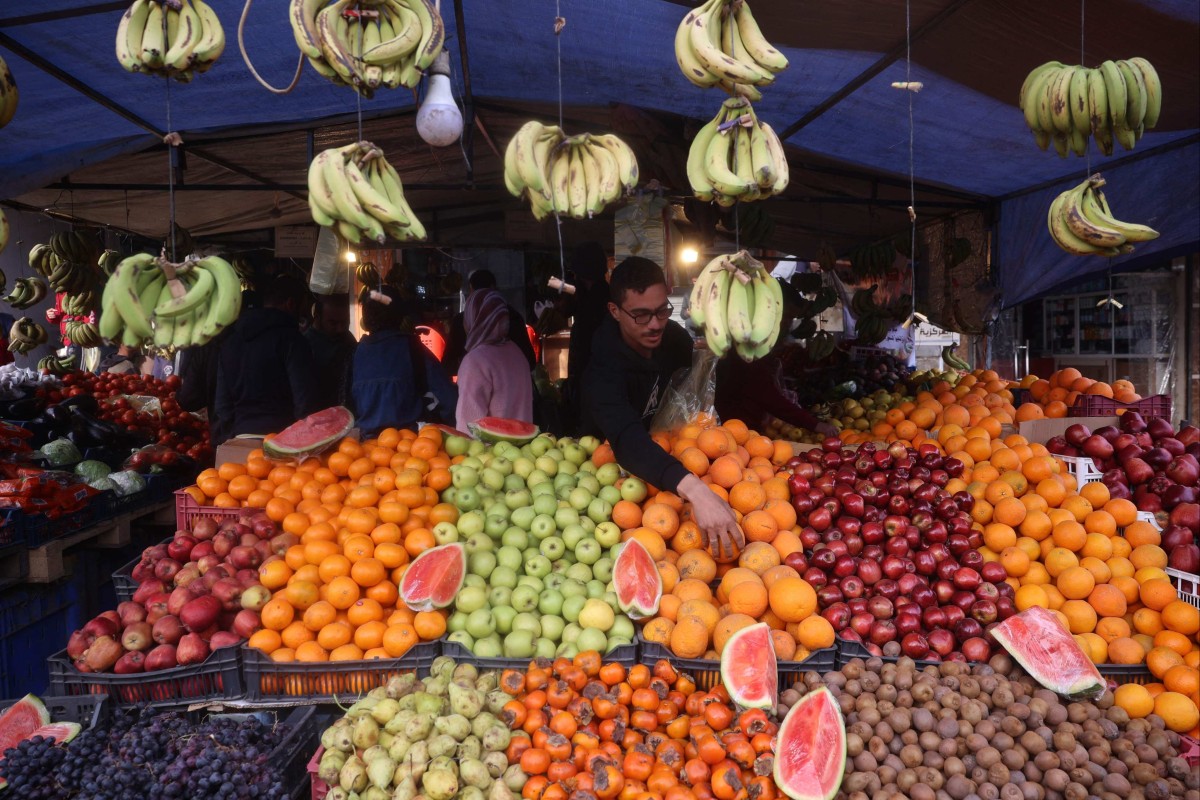
Gazans face soaring food prices as Israel halts aid amid Hamas ceasefire talks
The humanitarian crisis deepens in the region even as the Muslim holy month of Ramadan started on Saturday.
 Amidst stalled ceasefire talks, Israel’s decision to halt aid into Gaza has sparked fear and soaring food prices. Photo: AFP
Amidst stalled ceasefire talks, Israel’s decision to halt aid into Gaza has sparked fear and soaring food prices. Photo: AFPPalestinians in war-torn Gaza are concerned about potential food shortages and rising prices after Israel stopped allowing aid into the area to pressure Hamas into agreeing to its terms for a ceasing of hostilities.
The effect of the Israeli announcement on Sunday was immediate, and sent ripples through markets across the Gaza Strip.
Prices for basic goods soared despite attempts by the authorities to keep them stable, according to shoppers and aid workers.
“There is a lot of fear, today there are a lot of people buying food supplies and prices have risen a lot,” Belal al-Helou said.
As long as Gaza’s crossings are closed, “the prices will rise and increase even more”, Helou explained.
Another shopper, Adly al-Ghandour, said prices had risen “80 per cent so far, and if the crossing remains closed, prices will rise 200 per cent”.
Around them, stalls were still well-stocked from the first phase of the ceasefire, which began on January 19 and enabled the entry of vital food, shelter and medical assistance after more than 15 months of war.
Shopkeepers also sold decorations such as small lanterns and signs reading “Happy Ramadan”, while bakers made hundreds of pancakes to be used in qatayef, a pastry filled with cream and nuts typically eaten during the Muslim holy month that started on Saturday in Gaza.
Trump’s bold plan to take control of Gaza sparks controversy
Caroline Seguin, emergency coordinator for Medecins Sans Frontieres in Gaza, said trucks that were supposed to arrive on Sunday were turned back full.
“We were able to get a few trucks in during the six weeks of ceasefire, but it’s no panacea” for the humanitarian situation, Seguin said.
Although the organisation’s stocks of medical equipment were somewhat replenished during the first phase, other items such as generators and supplies for water desalination were blocked because Israel labels them “dual use” items that could be used by militants to make weapons.
Seguin added that humanitarian aid “shouldn’t be a part of ceasefire negotiations while Gaza’s population needs assistance”.
In the northern city of Jabalia, displaced Palestinians who returned after the start of the ceasefire live in tents erected by charity organisations on a patch of cleared land, surrounded by bombed-out buildings.
Senior Hamas official Osama Hamadan said on Monday that only 15 of the 65,000 mobile homes that were due to enter Gaza during the ceasefire had actually made it in.
Seguin said she had noted an instant price increase in Gaza markets, including for eggs, whose price went up 150 per cent.
But above all, Seguin said the aid suspension was a hard blow to Gazans’ morale.
“They’re completely demoralised,” she said of her Gazan colleagues who had held on through 15 months of fighting.
“They’re afraid of a return to the November-December situation ... when you couldn’t find bread and there wasn’t any meat in town.”
Meanwhile, Israeli government spokesman, David Mencer, accused Hamas of hoarding supplies and claimed the Palestinian Islamist movement had “enough food to fuel an obesity epidemic”.
“The supplies are there but Hamas don’t share,” Mencer told journalists.
Negotiations between Israel and Hamas for the continuation of the truce have hit an impasse in recent days.
Israel is pressing to extend the ceasefire’s first phase, while Hamas favours moving on to phase two of the deal, which envisions an Israeli withdrawal from Gaza and a more permanent end to the war.